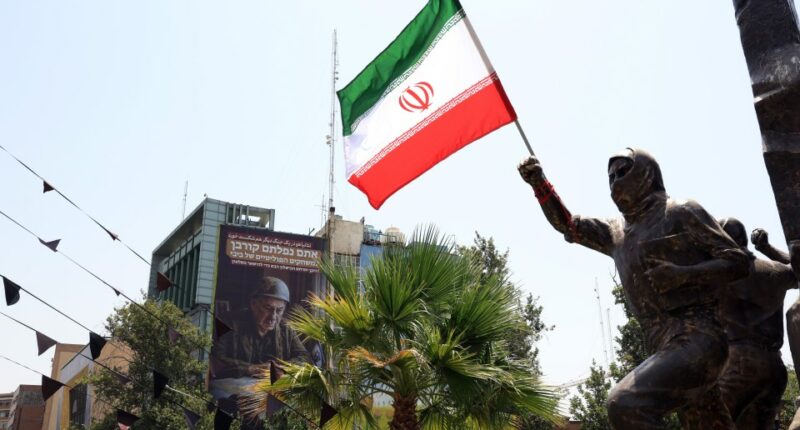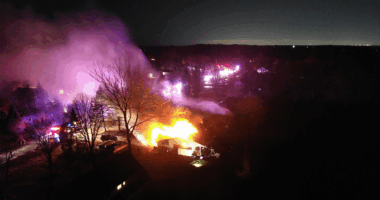Share this @internewscast.com
IRAN poses a significant threat to Britain with Tehran’s spies targeting the UK as a priority, a new report has found.
According to the Chair of the Intelligence and Security Committee, the Islamic Republic is capable of executing “wide-ranging, persistent and unpredictable” attacks on our nation.
Dissidents residing in the UK are the primary targets of assassination attempts, with MI5’s Director General Sir Ken McCallum stating that their strategies focus on “regime survival, dissidents, and media organisations.”
They will go after anyone they perceive as “being problematic for the regime”.
The report identifies potential targets such as Iranian dissidents, journalists, those convicted of terror offences in Iran, activists, former government officials, environmentalists, refugees, university students, and staff at international non-governmental organisations.
British civil servants have had their personal email addresses targeted by Iranian cyber security attacks in an attempt to find out information about the UK government.
Any calls made to and from Iran are believed to be intercepted by their security services to “support espionage operations”.
Sir Ken revealed that Iranians are attempting to recruit junior people who don’t currently have access to privileged information in Government but might one day.
He said: “They are patient and up for trying to do … seeding type of operations where they cultivate people who might be a bit more naive, or early in their careers with a view to then becoming longer-term assets.”
MI5 has also seen that Israeli or Jewish entities in the UK have been the target of potential attacks.
Iranian intelligence services are “willing and able” to try to assassinate targets in the UK, with at least 15 murder or kidnap attempts from the beginning of 2022 to August 2023.
In May, three alleged Iranian spies – two of which came to the UK on a small boat – were charged with targeting UK-based journalists so that “serious violence” could be inflicted on them.
Mostafa Sepahvand, 39, Farhad Javadi Manesh, 44, and Shapoor Qalehali Khani Noori, 55, are thought to have targeted people working at Iran International, an independent media organisation based in London.
The 246-page report by the Intelligence and Security Committee stopped taking evidence back in August 2023 – so does not consider the October 7 attacks by Hamas or any more recent threats to the UK by Iranian state actors.
It has also found that Iran’s nuclear weapons programme would “pose a threat to UK nationals in the region and to the UK mainland” if it was allowed to grow.
As of August 2023, the committee said that Iran had not yet developed a nuclear weapons programme or taken a decision to produce one.
In June of this year Donald Trump launched a blitz on Iran’s nuclear sites when he sent a dozen bunker buster bombs to target the mountain-fortress Fordow.
UN’s top nuclear watchdog International Atomic Energy Agency (IAEA) has since warned that Iran could start enriching uranium again within months.
Tehran admitted that the US and joint Israeli operations caused “excessive and serious damage”.
Iran is said to want to build a “deep alliance” with Vladimir Putin’s Russia despite a “legacy of distrust and suspicion”.
‘IRAN POSES AN UNPREDICTABLE THREAT TO THE UK’
The Chairman of the ISC, The Rt Hon. the Lord Beamish PC, said: “Iran poses a wide-ranging, persistent and unpredictable threat to the UK, UK nationals, and UK interests.
“Iran has a high appetite for risk when conducting offensive activity and its intelligence services are ferociously well-resourced with significant areas of asymmetric strength.
“It supplements this with its use of proxy groups – including criminal networks, militant and terrorist organisations, and private cyber actors – to provide it with a deniable means of attacking its adversaries with minimal risk of retaliation.
“As the Committee was told, Iran is there across the full spectrum of all the kinds of threats we have to be concerned with.”
The report highlights that there has been a “sharp increase” in the threat of physical attacks posed to dissidents and other opponents of the regime on UK soil.
On physical attacks, the report states that: “The Homeland Security Group told us that the threat of physical attack on individuals in the UK is now ‘the greatest level of threat we currently face from Iran’, and comparable with the threat posed by Russia.”
Lord Beamish noted that Iran has a “willingness to use assassination as an instrument of state policy”.
He added: “We remain concerned that the Government’s policy on Iran has suffered from a focus on crisis management and has been primarily driven by concerns over Iran’s nuclear programme – to the exclusion of other issues.
“’Fire-fighting’ has prevented the Government from developing a real understanding of Iran, with a lack of Iran-specific expertise across Government.
“As with our previous Inquiries into China and Russia, governance structures are over-complicated – with the attendant risk of too much talking at the expense of action.
The Government must move on: the national security threat from Iran requires a longer-term view, and resourcing must be consistent with that threat.”



















